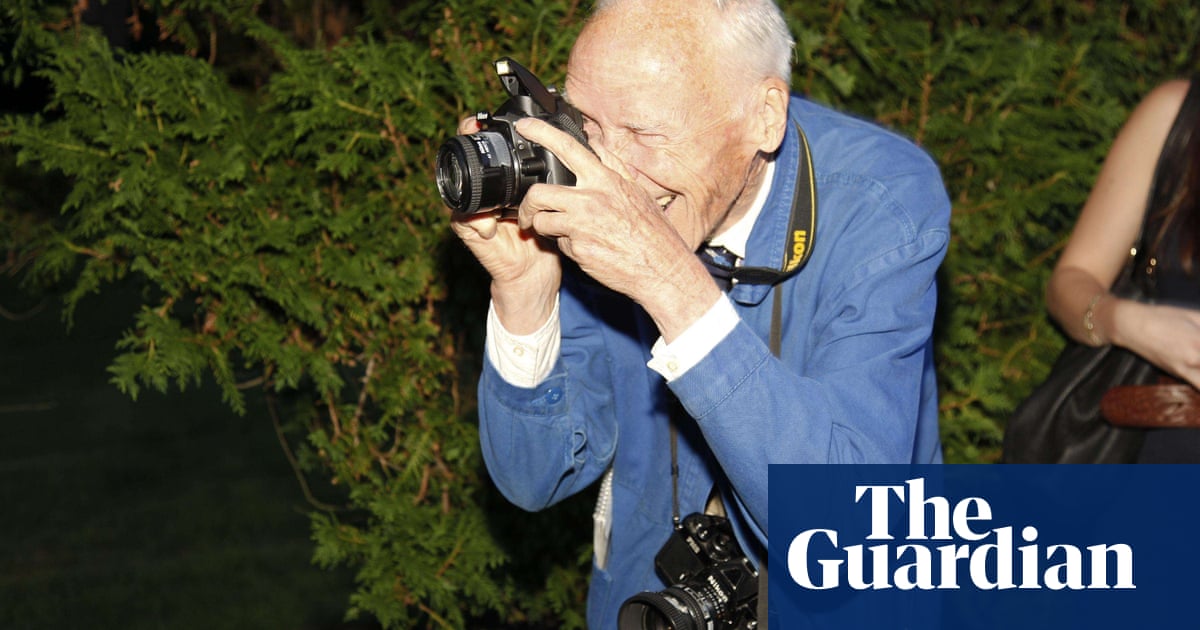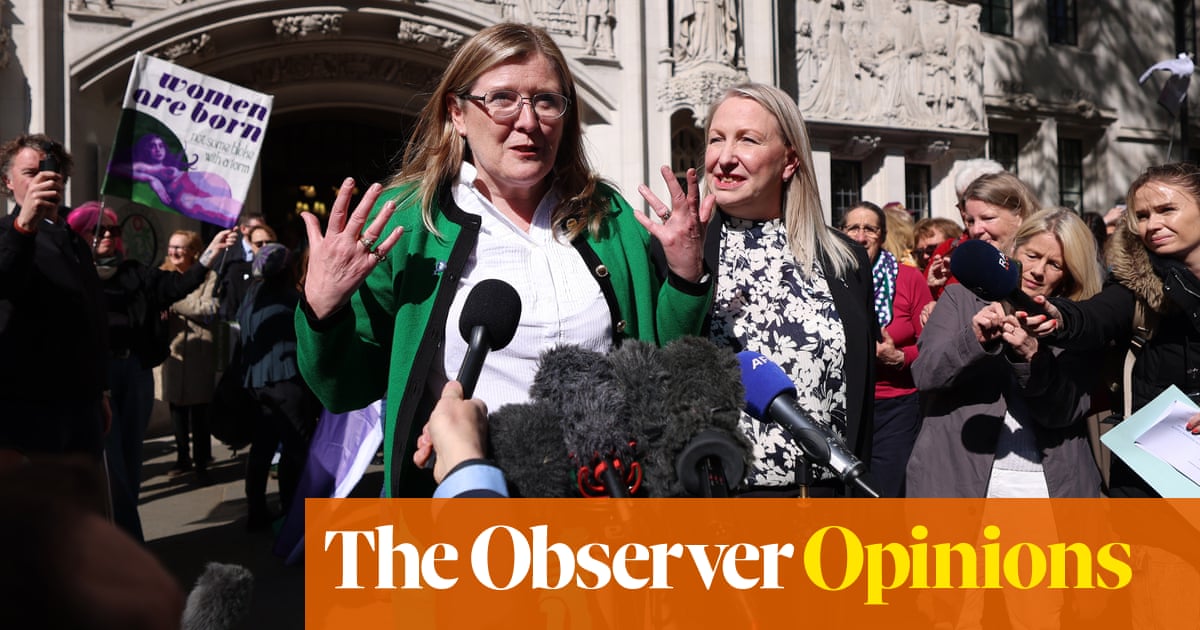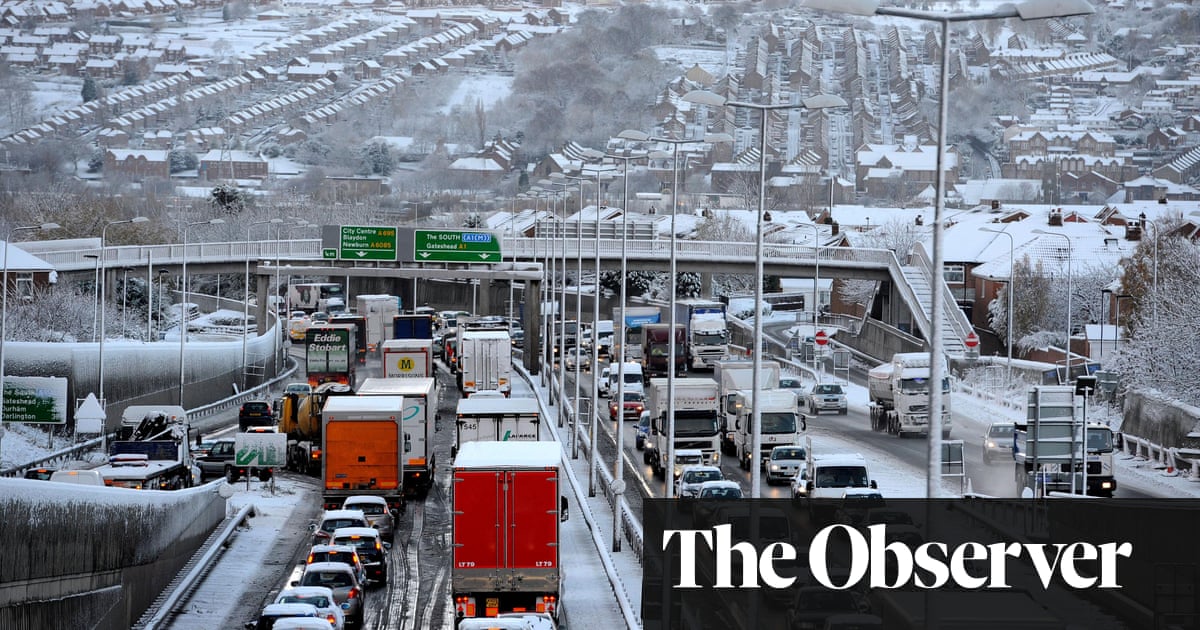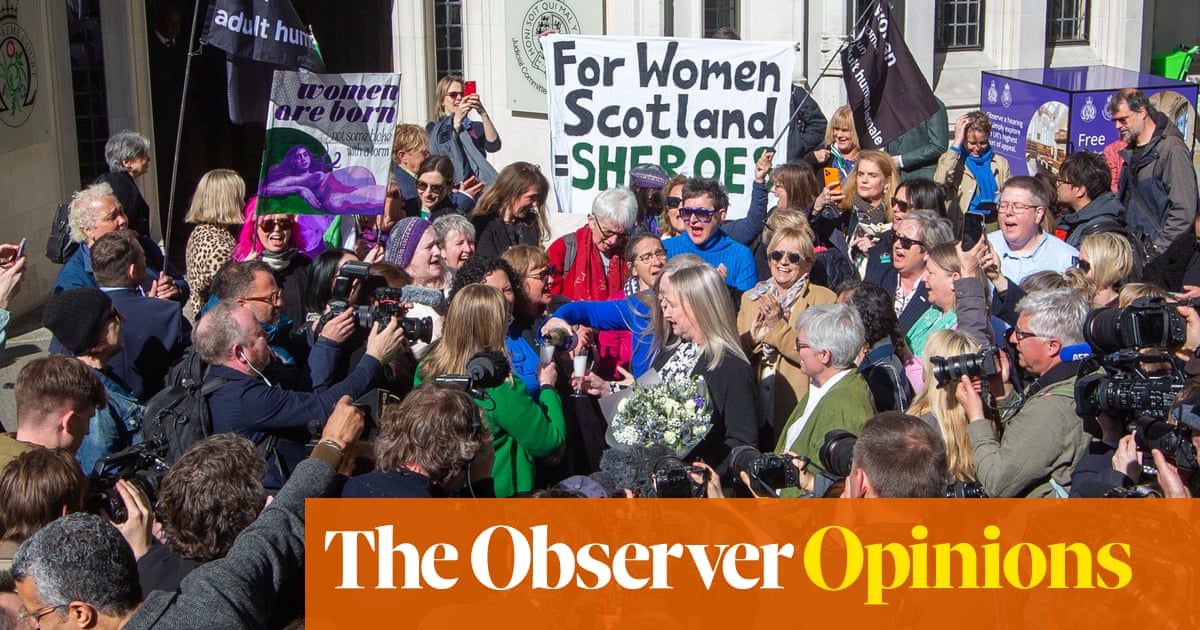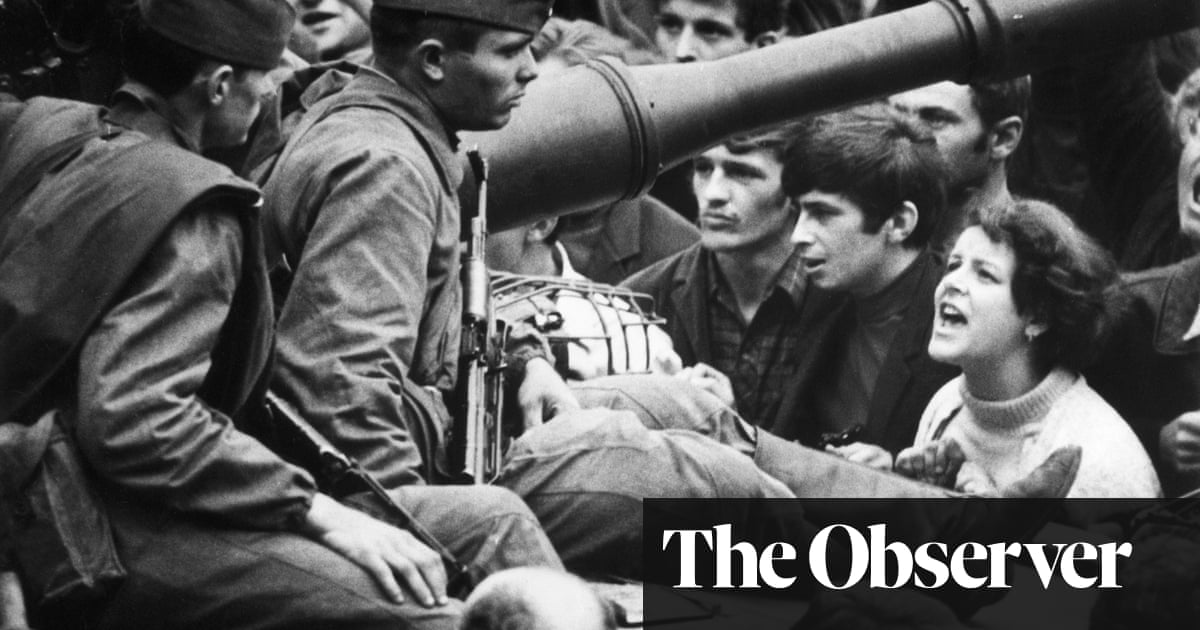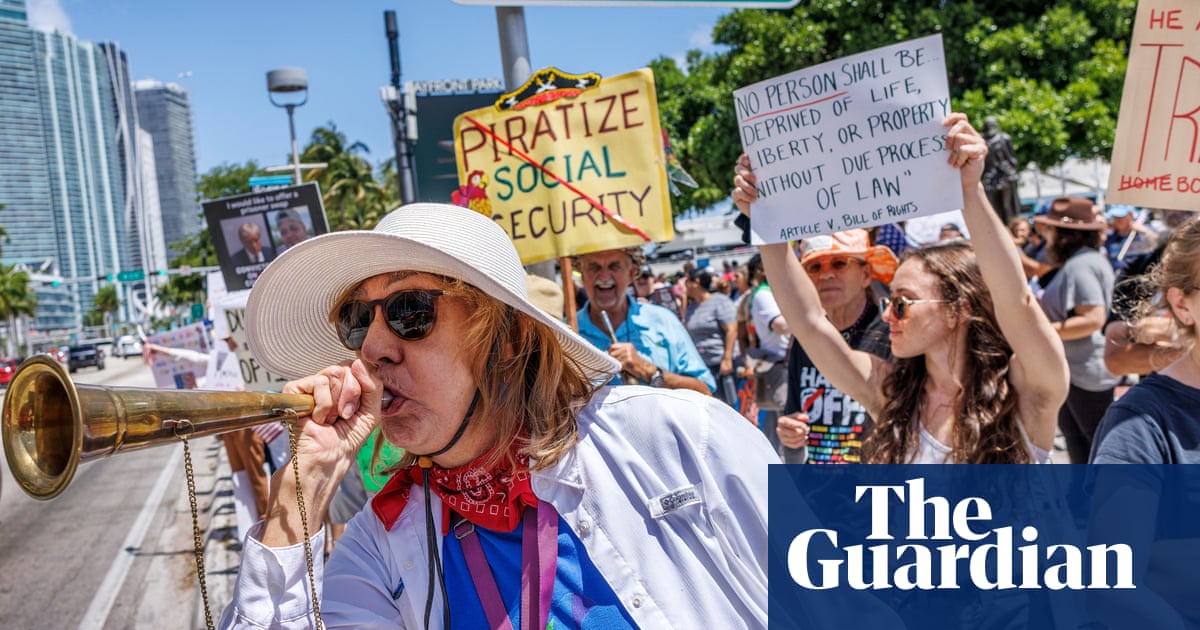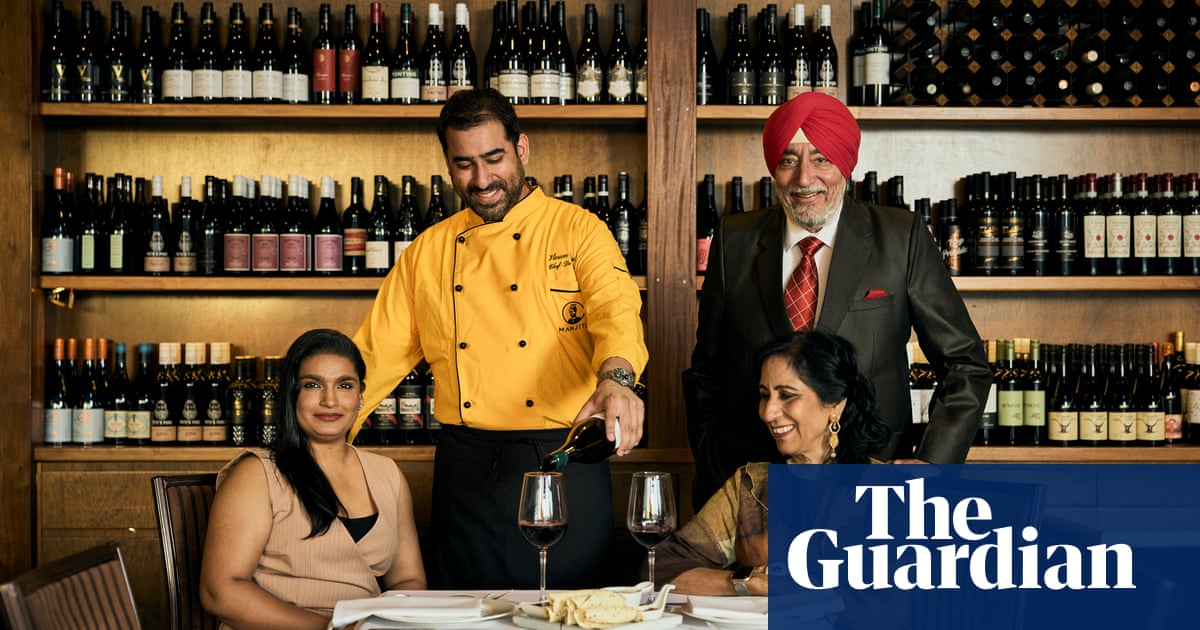The post-cold war era is “well and truly over” and keeping the British people safe means standing up to Russia, the UK foreign secretary, David Lammy, has warned.
Writing in the Guardian before a meeting likely to be focused on Ukraine between the UK prime minister, Keir Starmer, and the French president, Emmanuel Macron, in Downing Street, Lammy insists “keeping the British people safe means standing up to the Kremlin. Working with our friends and allies to deter Putin’s mafia state.”
He also says facing down the new geopolitical threats will require a revamped Foreign Office that accepts that the distinctions between international and domestic policy have become more blurred than ever before.
In a statement of this intent, Lammy announced the Foreign Office will introduce the first standalone sanctions regime in the world directed at freezing the UK assets of people smugglers and organised crime entities.
A range of other measures designed to hit people smugglers have already been announced, but this is the first time the highly developed UK sanctions regime, already repurposed to seize the assets of kleptocrats, will be expanded to hit people smugglers and those that enable them in the UK.
Lammy claims a realistic strategy to reduce the flow of migrants – which now eats into about a third of the UK’s overseas aid budget – “involves transactional, hard-headed diplomacy with partners all along the international people-smuggling pathway”.
He adds: “There are some who argue migration is not a progressive issue. They are, quite simply, wrong. There is nothing progressive about leaving the most vulnerable exploited. Nothing progressive about letting criminal gangs get rich and drive more crime on the streets of Britain.”
The new sanctions regime will require primary legislation. Critics will say the scheme will have limited practical impact because few people-smuggling gangs will have assets in the UK or be likely to be seeking a visa to visit the UK.
More broadly, Lammy is expected to use a landmark foreign policy speech to try to spell out how the Foreign Office has to adapt to new era of conflict with Russia.
He likens the moment to the geopolitical fog that enveloped Europe as it moved from the second world war into a cold war that was to last four decades.
Arguing the world is similarly on the brink of a new era, he writes: “We are not living in the 1990s any more. The post-cold war peace is well and truly over. This is a changed strategic environment, with more conflicts than at any time since 1945 and the most refugees and displaced people worldwide on record.
“We are at a moment of great uncertainty once again. Our foundation will always be Britain’s security, facing down geopolitical threats at a time of war in Europe, but we must do so recognising this is a time that the line between foreign and domestic policy has blurred more than ever.”
He adds: “That’s why our foreign policy had to change. Inspired by my great predecessor, Ernest Bevin, I have been putting into practice an approach I call progressive realism. Taking the world as it is, not as we wish it to be. Pursuing a consistent strategy to our overseas relationships – ending the Tories’ wild oscillation on Europe and China.”
Lammy has commissioned three major internal reviews designed to integrate the Foreign Office better into Whitehall.
Prof Ngaire Woods, dean of the Blavatnik School of Government, was commissioned to review the UK’s global impact, Minouche Shafik, a peer and former deputy governor of the Bank of England, has completed a review into the future of UK development, and Sir Martin Donnelly, a former permanent secretary at the Department for Business, Innovation and Skills, has been asked to look at how diplomats could secure greater UK growth.
after newsletter promotion
Recommendations from the three reviews will now be handled by Olly Robbins, appointed on Tuesday to be the new permanent secretary at the Foreign Office. He was the civil servant who led the Brexit talks under Theresa May, and will play a major role in resetting the UK’s relationship with the EU.
His appointment caps off Starmer’s efforts to assemble a new diplomatic team that includes Jonathan Powell as national security adviser and Lord Mandelson as Washington ambassador.
Lammy writes: “Moments of upheaval are an opportunity to take an honest look at our institutions, and make essential reforms.” He adds: “British diplomats were dedicated civil servants, but it is also clear they have less of an instinct than the rest of Whitehall for what is needed to deliver domestically for the people of Britain.”
Senior diplomats acknowledge that Donald Trump’s reluctance to provide further aid to Ukraine is a first-order challenge for Europe with its implications for security in Europe and the transatlantic alliance.
In his talks with Starmer on Wednesday, Macron is likely to underline his message to French diplomats this week, in which he warned Putin has decided de facto to globalise the Ukrainian conflict.
He also added: “The new American president himself knows that the United States has no chance of winning anything if Ukraine loses, and I will say it very simply, in a few lines: no solution should be found in Ukraine without the Ukrainians, no solution should be found for security in Europe without the Europeans, no quick solution that would mean the capitulation of Ukraine can be good for the Europeans and the Americans.”
In advice Starmer is increasingly likely to accept, he insisted Trump does not respect weak and divided allies.

 3 months ago
49
3 months ago
49
